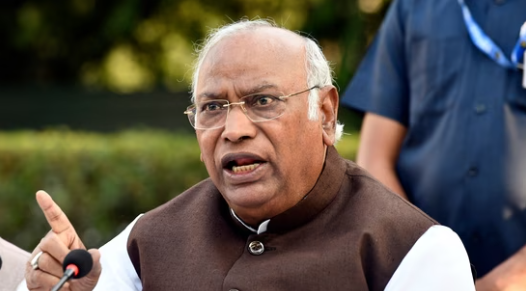The Indian government’s push for the “One Nation, One Election” initiative has sparked intense debate, with substantial criticism from Opposition leaders, particularly Congress President Mallikarjun Kharge. The proposal aims to synchronize national and state elections to streamline the electoral process, but critics argue that it poses a serious threat to India’s democratic fabric and federal structure, reported The Indian Express.
Congress President Mallikarjun Kharge has been vocal in opposing the proposal, labeling it as impractical and a diversion from more pressing national issues.
“This is not practical and will not be allowed. At the time of elections, they can’t find any issues and they bring such things to divert from the main issues. The people of this country will not accept this,” Kharge asserted. His statement reflects a broader concern that the initiative is a political maneuver rather than a genuine attempt to improve governance.
Kharge’s criticism is echoed by several other leaders who view the proposal as an encroachment on state autonomy. Kerala Chief Minister Pinarayi Vijayan has warned that the plan could undermine India’s federal structure, concentrating power at the central level and eroding the diverse political dynamics of individual states. This centralization could transform India’s parliamentary democracy into a more presidential system, reducing the effectiveness of state governments and disregarding regional issues.
Opponents argue that the logistical and administrative challenges of implementing simultaneous elections are formidable. With diverse political landscapes and varying electoral cycles across states, coordinating a single election date for all levels of government could be chaotic and unfeasible. Critics point out that the current system, despite its flaws, accommodates the unique political needs and issues of different states.
The proposal revives a system that was phased out in 1967 due to frequent state assembly dissolutions, which often led to instability and premature elections. Reverting to such a system without addressing its historical shortcomings could risk repeating past problems rather than solving current ones.
The Opposition fears that the “One Nation, One Election” scheme could be used to sideline state-level issues and concentrate power within the central government. This move could weaken the checks and balances that are essential for a healthy democracy, potentially compromising democratic accountability and representation.
The proposal for simultaneous elections is a contentious issue with far-reaching implications. While the government advocates for its potential benefits in terms of efficiency and cost-saving, the Opposition, led by figures like Mallikarjun Kharge, highlights significant concerns about its practicality and impact on federalism. As the debate continues, the focus remains on whether this ambitious initiative will serve to enhance or undermine the democratic processes in India.




